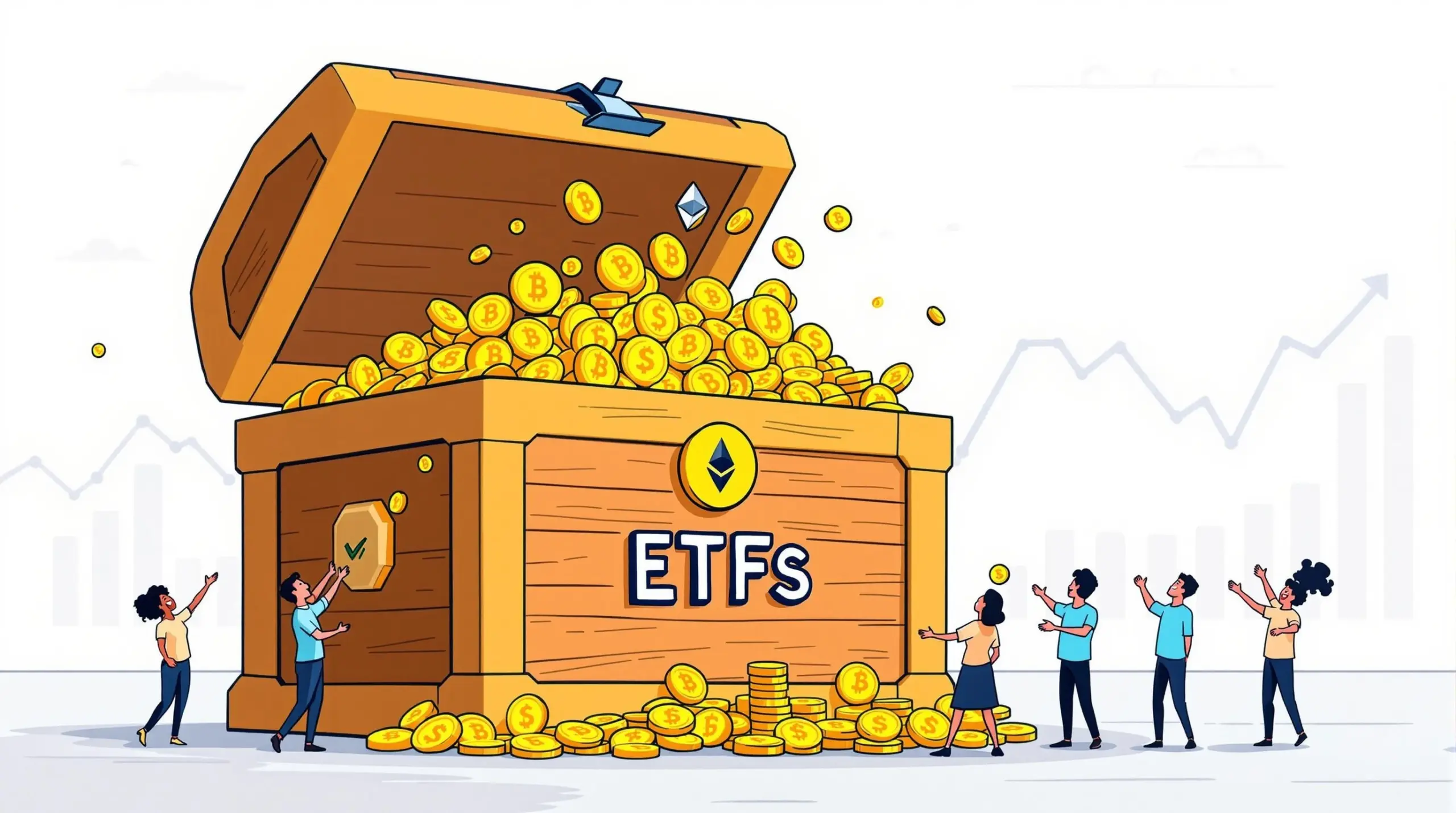BitcoinWorld

India Crypto Regulations: A Landmark Proposal for Digital Asset Freedom
The world of cryptocurrencies and Web3 is constantly evolving, and nowhere is this more evident than in India. For years, stakeholders have clamored for clarity and a progressive framework for digital assets. The lack of comprehensive India crypto regulations has left innovators and investors navigating uncertainty. But a potential solution has emerged: the COINS Act – a model law designed to unlock India’s immense potential in the digital economy.
What is the COINS Act and Why is it Crucial for India Crypto Regulations?
In a significant development for India’s burgeoning Web3 ecosystem, Web3 investment firm Hashed Emergent and policy advisory group Black Dot have unveiled the COINS Act (Crypto-Asset, Innovation, and National Security Act). This isn’t just another discussion paper; it’s a meticulously crafted model law, aiming to provide much-needed clarity and a forward-thinking framework for India crypto regulations. Think of it as a blueprint, designed to address existing ambiguities and foster an environment ripe for innovation.
The COINS Act is a non-binding proposal, meaning it’s not yet law, but its significance lies in its potential to influence future legislative discussions. It represents a collaborative effort to articulate a vision for how India can embrace the digital asset revolution responsibly and strategically. Its core objective is to transform India into a more attractive hub for crypto builders, developers, and users by laying down clear, consistent, and supportive rules.
Currently, the regulatory environment in India is characterized by a piecemeal approach, often leading to confusion and hindering growth. The COINS Act seeks to replace this ambiguity with a comprehensive framework. Here’s a brief comparison:
| Aspect | Current Scenario (Broad Strokes) | COINS Act Proposal |
|---|---|---|
| Regulatory Clarity | Fragmented, often reactive, lack of a single overarching framework. | Proposes a dedicated crypto regulator for cohesive oversight. |
| Taxation | High, often seen as prohibitive (e.g., 30% tax on gains, 1% TDS). | Aims to address high taxes, potentially suggesting more favorable structures. |
| User Rights & Protections | Limited explicit protections for crypto users and their assets. | Outlines specific rights like self-custody and financial privacy. |
| Innovation & Growth | Hindered by uncertainty, leading to talent drain and slower adoption. | Seeks to foster innovation by providing a predictable legal environment. |
| Asset Oversight | No clear mechanism for managing seized crypto assets. | Recommends a national Bitcoin reserve seeded from seized assets. |
What Revolutionary Rights and Freedoms Does COINS Act Propose for Digital Assets?
One of the most compelling aspects of the COINS Act is its focus on enshrining fundamental rights for crypto users and participants. These proposed rights are crucial for building trust, encouraging adoption, and ensuring that individuals have control over their digital assets. For the evolution of sound India crypto regulations, these are game-changers:
- Self-Custody: This is a cornerstone of true decentralization. The COINS Act recognizes the right of individuals to hold their own private keys and manage their digital assets without relying on third-party intermediaries. This empowers users and aligns with blockchain’s core ethos.
- Protocol Access: The proposal advocates for the right to access and utilize open blockchain protocols. This means fostering an environment where developers can build, and users can interact with decentralized applications (dApps) and various blockchain networks without undue restrictions. It ensures an open internet for finance and innovation.
- Financial Privacy: While balancing the need for anti-money laundering (AML) and know-your-customer (KYC) regulations, the COINS Act seeks to protect the financial privacy of individuals using digital assets. This is vital for personal autonomy, ensuring legitimate transactions are not unduly scrutinized.
By outlining these explicit rights, the COINS Act aims to provide a robust legal foundation that can protect users and encourage responsible innovation. It signals a move towards treating digital assets with the respect and understanding they deserve, rather than viewing them solely through a lens of suspicion.
How Does COINS Act Tackle Existing Challenges in India Crypto Regulations?
The current landscape of India crypto regulations is plagued by several pain points that have stifled growth and pushed talent overseas. The COINS Act directly addresses these critical issues, offering pragmatic solutions:
- High Taxation: India’s current tax regime for crypto, including a flat 30% tax on gains and a 1% Tax Deducted at Source (TDS) on transactions, has been widely criticized for being punitive and discouraging. The COINS Act aims to propose a more rational and progressive tax structure that incentivizes participation rather than penalizing it. Its mention signals recognition of this significant hurdle.
- Unclear Rules: The lack of a unified and clear regulatory framework has created immense uncertainty. Businesses and individuals are often unsure about what is permissible and what is not, leading to hesitation in investment and development. The COINS Act seeks to provide definitive guidelines, defining what constitutes a crypto-asset, outlining permissible activities, and establishing clear compliance pathways.
- Lack of Dedicated Oversight: Currently, various government bodies might have tangential oversight, but there isn’t a single, specialized regulator for the crypto space. The COINS Act recommends the creation of a dedicated regulatory body. This specialized entity would possess the expertise to understand the nuances of blockchain technology and digital assets, enabling more effective and adaptive regulation, rather than shoehorning crypto into ill-fitting existing frameworks.
- Managing Seized Assets: An interesting and innovative proposal within the COINS Act is the recommendation for a national Bitcoin reserve, seeded from seized crypto assets. This addresses the practical challenge of managing digital assets confiscated in legal proceedings. Instead of liquidating them immediately, holding them in a reserve could potentially generate value for the nation. This demonstrates a forward-thinking approach to digital asset management.
These proposed solutions are designed to create a more predictable, fair, and growth-oriented environment for digital assets in India. They aim to shift the narrative from one of apprehension to one of opportunity.
What Could the Future Hold for India Crypto Regulations with the COINS Act?
The unveiling of the COINS Act is more than just a policy proposal; it’s a statement of intent. It signifies a growing recognition among key stakeholders that comprehensive and enabling India crypto regulations are not just desirable, but essential for the nation’s economic future. If adopted, or if its principles heavily influence future legislation, the implications could be profound:
- Boosting Innovation and Entrepreneurship: Clear rules reduce risk for startups and established businesses alike, encouraging investment in Web3 technologies, blockchain development, and crypto services. This could lead to a surge in indigenous innovation.
- Attracting Global Talent and Investment: A stable and progressive regulatory environment would make India a magnet for international crypto companies and skilled professionals, potentially reversing the ‘brain drain’ witnessed in recent years.
- Enhanced User Protection and Confidence: With defined rights and a dedicated regulator, users would feel more secure engaging with digital assets, leading to broader mainstream adoption.
- Economic Growth: A thriving crypto ecosystem can contribute significantly to GDP through job creation, new industries, and increased tax revenues (from a more reasonable tax structure).
- Global Leadership: By pioneering a balanced and forward-looking regulatory approach, India could position itself as a leader in the global digital asset space, influencing international standards and practices.
While the COINS Act is a model law, its release marks a crucial step. It provides a concrete framework for discussion, moving beyond abstract debates to specific legislative proposals. The path to implementation will involve extensive deliberation and stakeholder consensus. Nevertheless, its comprehensive nature injects optimism into the future of India crypto regulations.
Key Takeaways for India’s Digital Asset Future
- The COINS Act is a significant, detailed model law proposing clear India crypto regulations.
- It advocates for fundamental user rights: self-custody, protocol access, and financial privacy.
- The Act directly addresses pain points like high taxes, regulatory ambiguity, and lack of specialized oversight.
- A dedicated regulator and a national Bitcoin reserve from seized assets are innovative proposals.
- Its adoption could position India as a global leader in the Web3 space, fostering innovation and economic growth.
The COINS Act represents a pivotal moment for India’s digital asset journey. It’s a testament to the collaborative spirit of the Web3 community and policy advisors striving for a brighter, more regulated, and prosperous future for crypto in the nation. As discussions continue and the model law gains traction, all eyes will be on India, hoping this landmark proposal paves the way for digital asset freedom.
Frequently Asked Questions (FAQs) about India Crypto Regulations & the COINS Act
Q1: What is the COINS Act?
A1: The COINS Act (Crypto-Asset, Innovation, and National Security Act) is a model law proposed by Hashed Emergent and Black Dot. It aims to provide a comprehensive and clear regulatory framework for cryptocurrencies and digital assets in India, addressing current ambiguities and fostering innovation.
Q2: Is the COINS Act a legally binding law in India?
A2: No, the COINS Act is currently a non-binding model law. It is a proposal designed to influence future legislative discussions and provide a blueprint for comprehensive India crypto regulations, but it is not yet enacted law.
Q3: What key rights does the COINS Act propose for crypto users?
A3: The COINS Act proposes crucial rights such as self-custody (the right to hold your own digital assets), protocol access (the right to use blockchain networks), and financial privacy (while adhering to necessary compliance standards).
Q4: How does the COINS Act plan to address India’s high crypto taxes?
A4: While the model law doesn’t specify new tax rates, it recognizes high taxation as a major hurdle. It aims to address this by proposing a more rational and progressive tax structure that encourages participation in the digital asset economy, signaling a move away from current prohibitive rates like the 30% tax and 1% TDS.
Q5: What is the significance of a dedicated crypto regulator and a national Bitcoin reserve?
A5: A dedicated crypto regulator would provide specialized oversight and expertise, ensuring effective and adaptive India crypto regulations. A national Bitcoin reserve, seeded from seized assets, is an innovative proposal to manage confiscated digital assets, potentially turning them into a national asset similar to traditional reserves, rather than simply liquidating them.
Q6: How could the COINS Act impact India’s position in the global crypto landscape?
A6: If adopted, the COINS Act could position India as a leader in the global digital asset space by establishing a clear, fair, and innovation-friendly regulatory environment. This could attract global talent and investment, boost indigenous innovation, and contribute significantly to India’s economic growth.
If you found this article insightful, please consider sharing it with your network! Let’s spread awareness about the potential for clear and progressive India crypto regulations and contribute to the ongoing dialogue about the future of digital assets in the country.
This post India Crypto Regulations: A Landmark Proposal for Digital Asset Freedom first appeared on BitcoinWorld and is written by Editorial Team





